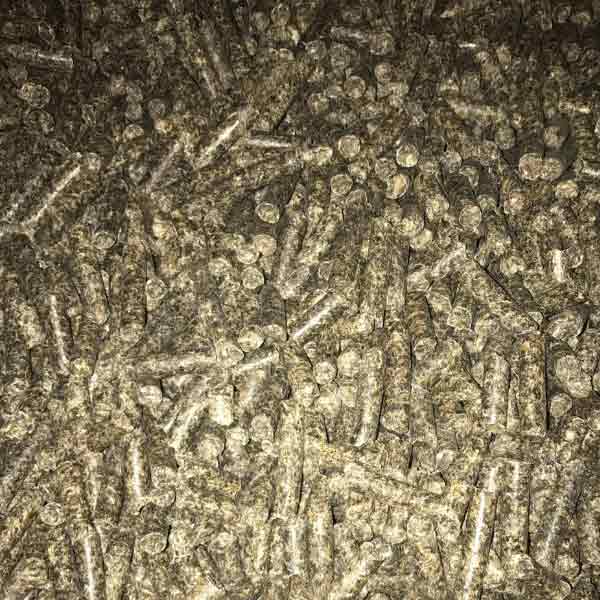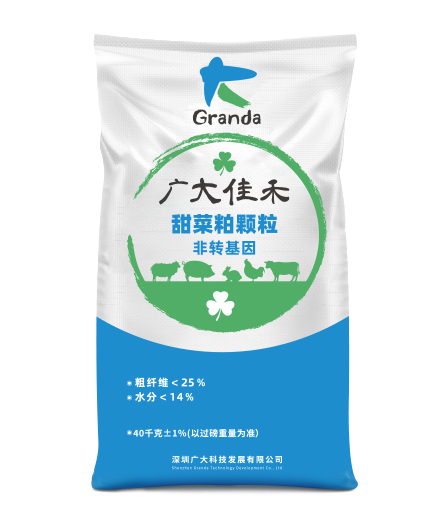Russian beet pulp/Egyptian beet pulp
Beet pulp is a by-product of sugar beet production. It contains plenty of sugar and neutral detergent soluble fiber. It has good palatability and rich nutrients and it can increase the concentration of short-chain fatty acids in the sow’s plasma and reduce the concentration of free fatty acids and improve insulin sensitivity and increased feed intake of sows during lactation; beet pulp is rich in fiber, which can solve sow constipation, effectively improve intestinal health, significantly increase the number of litters and the number of healthy litters, the number of live litters, weaning weight, and the production performance.
It can also regulate the rumen PH value on ruminants, reduce the occurrence of rumen acidosis, improve the digestibility of crude protein, increase the disease resistance rate of dairy cows, and increase the feed conversion rate and milk index. Granda currently mainly imports beet pulp from Egypt, Russia and the United States, with an annual import volume of more than 10,000 tons, mainly for large domestic feed groups and breeding groups.
- 浏览次数: 503
The waste shreds produced in the process of beet processing are called beet dregs. The beet dregs are called beet dregs after physical drying, and called beet dregs after granulation. They are the largest by-products in the process of beet sugar production. Beet meal has a high feeding value. It can not only feed ruminants such as cattle and sheep, but also feed monogastric animals such as pigs.
The beet meal is rich in betaine. As a methyl donor, betaine has similar nutritional effects to methionine and choline, and has the functions of improving sow performance and regulating lipid metabolism. During pregnancy, sows need fiber materials to reduce dietary energy concentration, maintain feed intake, and reduce harmful behaviors caused by hunger during pregnancy. Beet meal has become an ideal raw material for feeding sows because it can slow down the flow of chyme and increase the satiety of sows.
Beet meal can promote ruminant chewing, prolong ruminant time, promote saliva secretion, and help maintain the normal pH of the rumen. Because beet pulp fiber has a lower filling property than roughage NDF, a smaller length, and can be digested more quickly, it has a high content of digestible fiber, which can increase feed intake, increase milk production and milk fat rate of lactating cows and sheep, and at the same time It can effectively reduce laminitis and lameness caused by subacute rumen acidosis. For young ruminants, beet meal is also a very important raw material for optimizing rumen development. In addition, because beet meal is rich in pectin, it can slow down rumen fermentation through ion exchange and binding metal ions, slow down the pH drop of rumen juice and lactic acid production, and keep the rumen environment relatively stable.
Product index:
Imported beet meal
composition (approximately)
Moisture
14.00%
Sucrose
10.00%
Ash
10%
Aflatoxin
<10 ppm

Beet pulp factory


Beet plantation Beetroot

Granda Imported beet pulp





